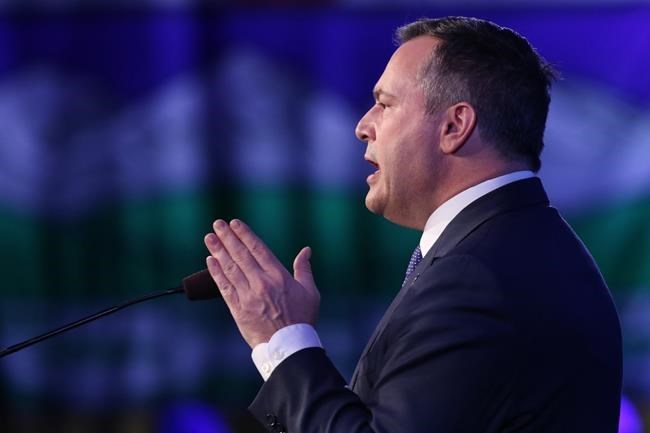EDMONTON — The double blow of collapsing oil prices and the COVID-19 crisis has pushed Alberta into a historic deficit of $24.2 billion — more than triple what the United Conservative government projected in its February budget.
"There will be some very difficult days ahead and the road to recovery will be slow," said Finance Minister Travis Toews, who delivered the first-quarter economic update Thursday.
The Opposition said Toews should have come to the table with a lot more than that.
"This is the time for government to change direction," said NDP finance critic Shannon Phillips in the legislature.
She called on the government to end the $4.7-billion tax cut it gave the province's largest corporations after last year's election. She criticized Toews for not mentioning health, education or child care — what she called the pillars of Alberta's economy.
Trevor Tombe, an economist at the University of Calgary, said the update suggests the government is sticking to its pre-pandemic game plan.
"The budget and the entire fiscal policy of the government's been kind of tossed out the window here," he said. "What I was looking for — and what we didn't get — is some kind of indication of where we're going to go."
Toews's update was a litany of gloom. Government debt is expected to hit $100 billion by the end of the fiscal year next spring. Revenue is anticipated to drop by $11.5 billion — nearly one-quarter.
Corporate taxes are to fall by more than half. Non-renewable resource revenue, the province's oily lifeblood, is projected to dissipate by 73 per cent.
Expected growth next year won't make up for a nearly nine per cent drop expected in the province's gross domestic product this year. Unemployment, now almost 12 per cent, is expected to stay near double-digit levels into 2021.
A balanced budget is nowhere to be seen.
"Right now would be almost impossible to provide a credible date to balance," Toews said.
Cuts are coming, he suggested.
"We will be looking for every opportunity to ensure we are delivering services most cost effectively. Alberta can no longer afford to be an outlier in the cost of delivering services."
So is a tough talk on taxes.
"In the longer term, it will be important that Albertans have a discussion on revenue structure and tax structure."
Tombe said that talk is inevitable. He said his calculations suggest that cutting spending to bring Alberta in line with other Canadian provinces won't balance the books.
"That is now not even going to get us close any more."
Alberta is one of the lowest-taxed jurisdictions in Canada and remains the only province without a sales tax.
Phillips said the government is spending plenty of money — on corporations, not families.
"What are people getting from this?" she asked. "We have seen a refusal on the part of this government to ensure they are supporting Albertans directly."
The government's past policies, including cancellation of programs meant to encourage the high-tech and film industries as well as its oilpatch tax relief, have made the problem worse, she said.
Tombe said the days when Alberta governments could expect oil prices to ride to their rescue are probably gone. Tax changes should be coming, he said.
"Now is an opportune time for the government to look at all sides of the budget."
Alberta's dependence on oil and gas revenue was underlined when Saskatchewan released its fiscal update a half hour later on Thursday.
That province is facing the same pandemic and low oil prices, but because its energy industry isn't nearly as dominant, Saskatchewan is projecting an economic bounce-back to pre-pandemic levels by 2022 and a narrow $125-million surplus by 2024.
Still, don't count Alberta out, said Tombe.
"Alberta has a strong balance sheet and a lot of runway still."
This report by The Canadian Press was first published Aug. 27, 2020
Bob Weber, The Canadian Press




